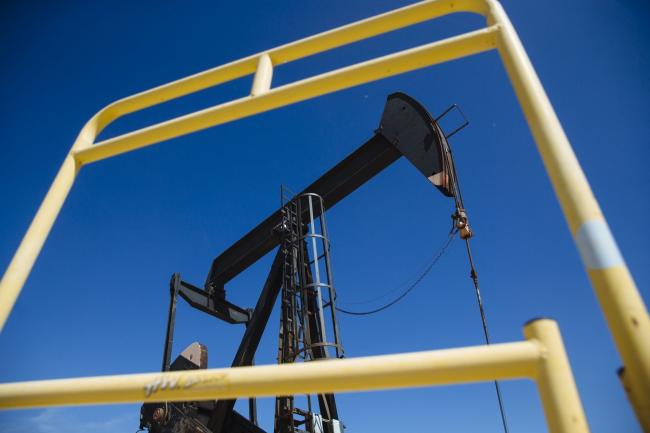(Bloomberg) -- Oil rose toward $38 a barrel and gold climbed for a third day as President-elect Joe Biden prepared to transition into the White House even as Donald Trump rejected the outcome of the U.S. election.
Crude futures in New York increased 1.9% after rising 3.8% last week. Spot gold added 0.4% and an indicator of the dollar was marginally lower. While Biden declared victory and prepared to navigate America’s pandemic-hit economy out of the crisis, the unresolved status of Senate control may dampen prospects for a major stimulus package before January. Meanwhile, Trump’s campaign team mounted lawsuits in key states after alleging election fraud.
Biden inherits a divided country and an economy ravaged by the coronavirus as infections race toward 10 million. Already, a second wave of Covid-19 has led to lockdowns across Europe, fueling concerns over a slowdown in a global oil-demand recovery amid rising crude supplies from Libya. Officials from the Organization of Petroleum Exporting Countries and allied producers offered support for a review and delay in the group’s plans to roll-back output curbs, lifting oil prices last week.
Investors are assessing the implications of Biden’s leadership on U.S. foreign policy and its stance toward China and key oil producers Iran and Venezuela. A potential U-turn from Trump’s combative “America First” approach could bring improved relations with allies and China. Biden has also pledged a range of first-day actions once inaugurated, including rejoining the Paris climate accord.
Read also: U.S. Energy Chiefs Mull What Biden Means for Oil, Renewables
In the physical crude market, traders were keeping close tabs on Libyan production after state-run National Oil Corp. reported Saturday that output now exceeds the million-barrel-a-day level -- the most since December. Incremental production from the African nation comes as Brent’s 3-month timespread remains firmly in contango, where prompt prices are cheaper than later-dated ones, a market structure that signals oversupply.
In Asia, foreign oil purchases by China slumped to a six-month low last month amid lower seasonal demand, even as overall imports are seen rising 10% this year as its economy continues to show strong signs of recovery. The region remains a bulwark against faltering oil demand worldwide as the virus spreads unabated across the U.S. and Europe, spurring more stay-home measures.
©2020 Bloomberg L.P.

